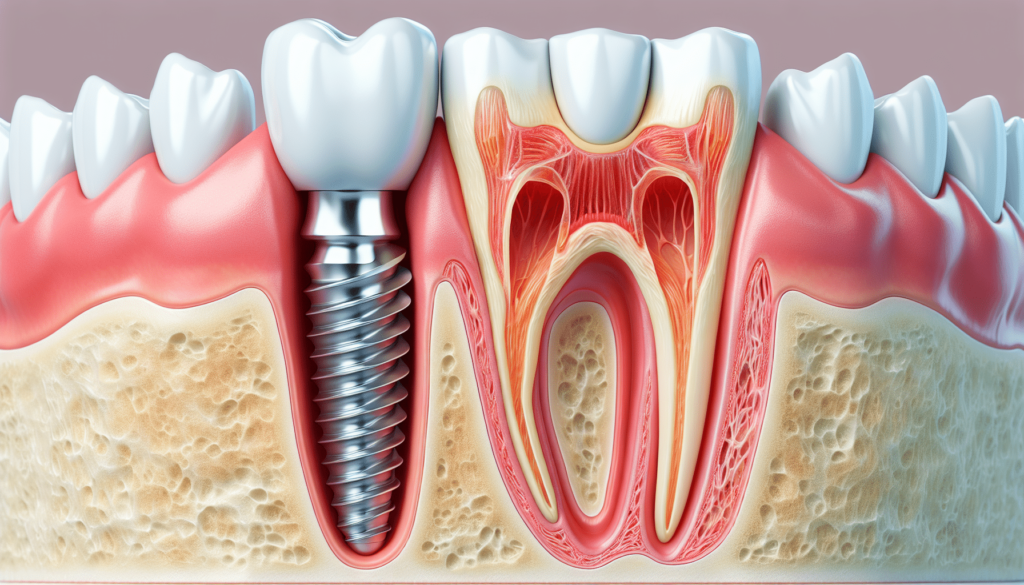The Journey to a Healthy Smile: Understanding Tooth Implants

Key Takeaways
- Tooth implants offer a long-term solution for missing teeth.
- Recent advances in technology have made the procedure more accessible.
- Consider all factors, including cost and long-term benefits, when exploring tooth implants.
The Basics of Tooth Implants
Missing a tooth can significantly impact your confidence and how you chew, speak, and smile. That’s where tooth implants come into play, offering a practical solution that mirrors the look and feel of natural teeth. Small titanium posts called tooth implants are inserted straight into the mandible to provide a strong foundation for prosthetic teeth. The beauty of this innovation lies in its ability to integrate with bone, forming a long-lasting bond that mimics a natural tooth root. This attribute ensures durability and helps prevent bone deterioration, a common issue associated with missing teeth.
One key consideration when deciding to get a tooth implant is cost. Many people often ask, how much does a tooth implant cost? While initially it might seem like a significant investment, the price reflects the advanced technology and materials, ensuring a long-term solution tailored to your dental needs. Over the years, investing in a permanent solution like implants has often proved financially prudent.
Why choose tooth implants?
Tooth implants offer numerous advantages over traditional dental restoration methods. Durability and stability are among the most compelling reasons to choose implants. Unlike dentures that can shift and cause discomfort or bridges that may need replacing, implants are designed to last for decades. This permanence is due to their ability to fuse with the jawbone, creating an anchor as strong as a natural tooth root.
Furthermore, dental implants are essential for maintaining facial shape. The surrounding bone gradually deteriorates because there is no longer any stimulation after tooth loss. Implants mimic tooth roots’ natural stimulation, maintaining the jawbone’s integrity. This aspect is crucial for oral health and keeping aesthetics facial, helping prevent the sunken appearance often resulting from missing teeth.
The Tooth Implant Procedure: What to Expect
The journey to receiving a tooth implant begins with a comprehensive evaluation. It typically involves dental imaging and consultations to determine bone density and oral health readiness. The assessment ensures candidates are suitable for the procedure, which is vital for long-term success.
A titanium post is inserted into the jawbone, where it will ultimately fuse through osseointegration as part of the implant procedure once it is judged appropriate. This phase, crucial for stability, usually takes several months. In the interim, a missing teeth solution is available to maintain function and aesthetics. Once healing concludes, the tailor-made crown is attached to the implant, completing the restoration. This meticulous process, although time-consuming, ensures the implant functions seamlessly within the mouth, providing both the feel and function akin to natural teeth.
Cost Considerations: A Worthwhile Investment
Understanding the financial investment involved in tooth implants is essential for potential candidates. While there are upfront costs, these must be weighed against the long-term benefits. Comparatively, options such as dental bridges or dentures might appear less expensive initially. However, they often require periodic replacements or adjustments, escalating costs. Conversely, implants offer longevity, potentially avoiding these recurrent expenditures.
Moreover, implants can enhance the quality of life by providing comfort and confidence that other solutions may not offer. For those mulling over financial investment, acknowledging these added benefits provides a more holistic view of the value implants bring. Viewing them as a long-term investment in oral health and overall well-being is a sensible approach.
Long-Term Care for Your Implant
Caring for an implant is akin to maintaining natural teeth, emphasizing the basics of good oral hygiene. Regular brushing, flossing, and dental check-ups are integral in extending the life of your implants and remaining natural teeth. Even though implants are durable, they nonetheless benefit from delicate handling and careful attention to eating habits, especially avoiding very sticky or hard foods since they might shorten their lifespan.
The long-term success of an implant also depends on controlling factors threatening oral health, such as gum disease. Regular dental visits ensure issues are caught early before becoming more significant problems. Engaging with your dental professional in a proactive partnership can ensure the longevity of your implant and the health of your broader oral landscape.
Innovations in Implant Technology
Technological advancements have significantly improved tooth implant procedures, making them more accessible and practical. Computer-guided surgery allows for precise placement, reducing discomfort and improving outcomes. Digital imaging technology streamlines initial assessments, leading to more customized treatments. This technology enhances the accuracy of dental evaluations, ensuring precise and personalized implant placement. These technological advancements contribute to a more predictable and successful process, providing a satisfactory patient experience.


